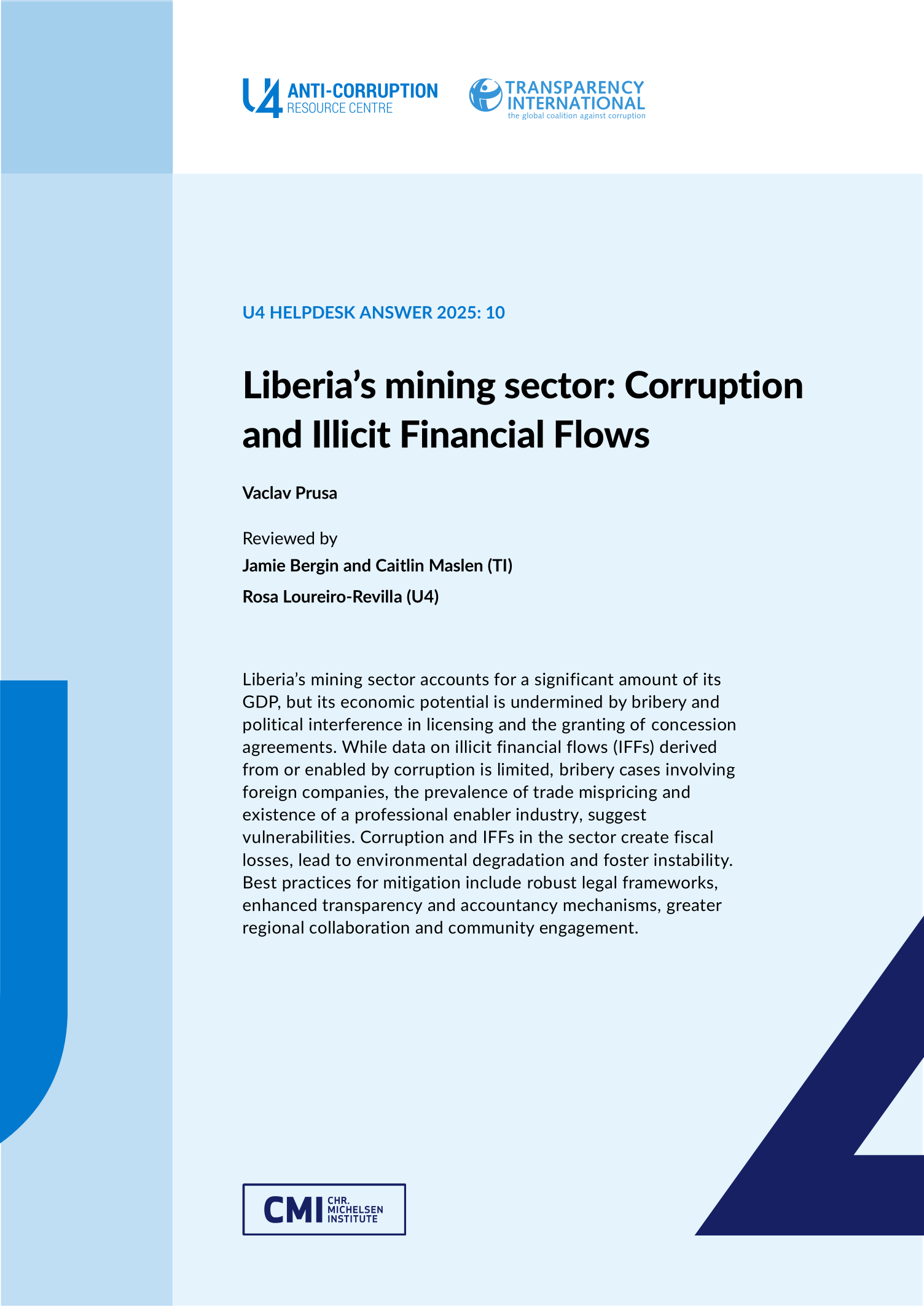Main points
- Liberia’s mining sector accounts for a significant portion of its total GDP, with its iron ore, gold and diamond deposits being the most lucrative minerals.
- The sector has witnessed repeated cases of bribery and political interference in licensing and the granting of concession agreements, often involving domestic political actors as well as multinational companies.
- Trade mispricing, smuggling networks and professional enablers’ presence in Liberia all contribute to the vulnerabilities to illicit financial flows (IFFs).
- While there has been no systematic analysis of the destination countries for IFFs linked to the sector, isolated cases indicate funds can end up in or be routed through secrecy jurisdictions.
- Corruption and IFFs in the sector generate not only significant fiscal losses but also wider harms including environmental degradation, an increase in human trafficking and risks of conflict and instability.
- International and regional best practices point to strengthening regulatory frameworks, including for private businesses and other professions operating in the mining sector.
- Transparency mechanisms, such as Liberia’s recent beneficial ownership registry and the Liberia Extractive Industries Transparency Initiative (LEITI), hold promise and could be strengthened.
- Actors from neighbouring countries may also be involved in IFFs stemming from Liberia’s mining sector, which requires regional cooperation to counter these transactions. By participating in regional agreements and sharing intelligence, countries can disrupt smuggling networks and enhance enforcement.
- Engaging local communities in mitigation measures can foster greater oversight in the sector and enhance their ability to advocate for greater safeguards and remediation against the negative impacts of mining. This is especially important in Liberia, where a large part of the population relies on artisanal and small-scale mining (ASM) as a source of livelihood.


